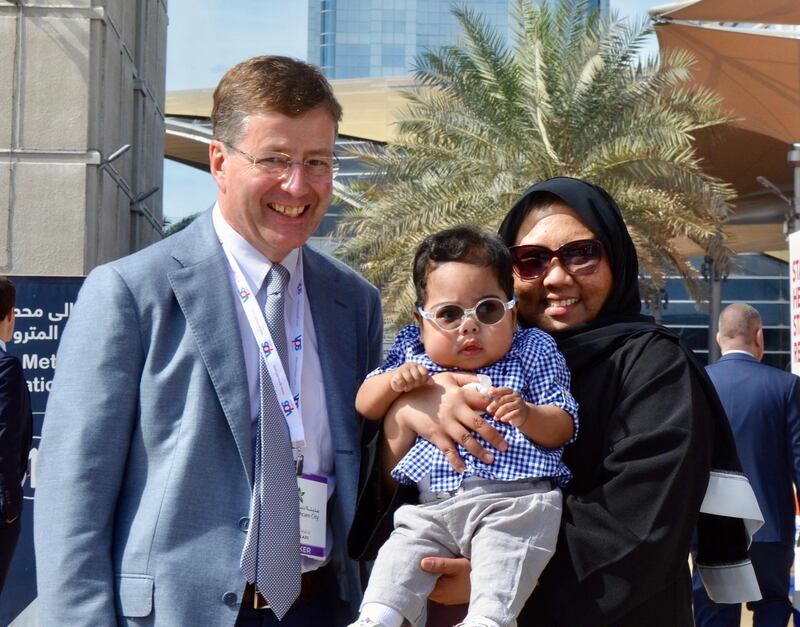An Emirati baby boy is one of the first in the region to benefit from a non-surgical heart technique that doctors say saved his life.
Premature baby Omar was too small to have surgery to replace a damaged pulmonary heart valve, after being born with congenital heart disease at just 30 weeks old.
Omar had a low birthweight and growth restrictions, but more serious was Shone’s complex – a rare disease that resulted in a defect on the left side of his heart.
Emergency surgery fixed that problem, but complications resulted in a long stay in a neonatal intensive care unit to help him recover.
Omar was then transferred to Great Ormond Street Hospital in London, which treats more than 1,500 children from the region every year for rare and complex conditions.
Eight weeks after Omar’s arrival in the UK a further cardiac operation was needed to address poor clinical progress and recurrent mitral valve stenosis- a narrowing of the heart’s mitral valve.
“Mitral valve replacement was our only option but as Omar was too small for a mechanical valve, we opted for a modified stented valve as an alternative,” said Dr Robert Yates, consultant and honorary lecturer in pediatric and fetal cardiology at the hospital .
“We needed to modify the valve for his size, its novel position in the heart, as well as putting the valve upside down.
“This valve would avoid the use of blood thinners and allowed for subsequent dilatation of the stented valve as he grows bigger.”
The original cardiac surgery technique was pioneered more than 15 years ago by the hospital and is now used all over the world.
It allows doctors to implant new pulmonary heart valves without opening up the patient’s chest.
Since its introduction, the hospital has worked to adapt and evolve the technique and now use the same stent mounted heart valve to replace the mitral valve in small babies, such as Omar.
“Omar is the first Emirati patient to ever receive this treatment,” said Dr Yates, who is speaking at Dubai’s Arab Health Exhibition on pediatric cardiology.
Omar also received subsequent laser eye surgery for a serious eye disease called ROP, a surgery that saved his eyesight.
A further surgical procedure, called Nissen’s fundoplication, was done to improve his reflux and help with weight gain, and he also had an inguinal hernia repair.
It has not been easy for Omar’s family, as whilst he was recovering, his mum Gladys was diagnosed with cervical cancer and has since had surgery.
“My husband and I were absolutely worried and afraid during each procedure Omar had,” she said.
“All operations pose risks, so I guess it’s a normal feeling for parents to be worried. We try to always stay optimistic.
“Dr Yates always made us feel that he will take care of Omar the very best way he can.
“We are very blessed to have the opportunity to be able to get treatment abroad.”






